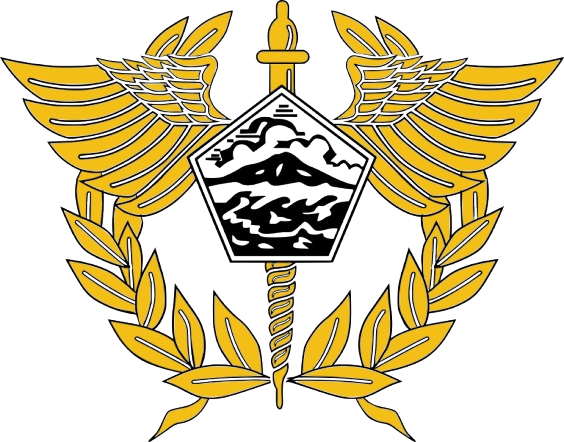Bea Cukai Gorontalo Hadirkan Sistem Pelayanan Terintegrasi
Bea Cukai Gorontalo, the customs authority in Gorontalo, Indonesia, has recently implemented an integrated service system aimed at enhancing efficiency and customer satisfaction. This innovative move reflects the ongoing commitment of the Indonesian Directorate General of Customs and Excise to modernize its operations and provide better services to the public and business communities. The integrated service system is designed to streamline processes, reduce processing times, and improve the overall experience for users of customs services.
Features of the Integrated Service System
-
One-Stop Service Concept
The new integrated service system employs a one-stop service concept, which simplifies the interaction between customs authorities and users. This model means that individuals or businesses seeking services related to customs matters, such as import and export documentation, can now handle their requirements at a single location, reducing the need for multiple visits and minimizing bureaucratic hurdles. -
Digitalization of Processes
With the modernization initiative, Bea Cukai Gorontalo has embraced digital transformations. Many processes, including the submission of documents and tracking of shipments, are now facilitated through an online portal. This digitization not only expedites the service delivery but also enables users to access services 24/7, greatly improving convenience. -
User-Friendly Interface
The online portal associated with the new integrated service system features a user-friendly interface that simplifies navigation. Designed to cater to both novices and experienced users, the portal offers clear guidance, instructional materials, and real-time support, which empower users to efficiently manage their customs-related tasks. -
Enhanced Transparency
Transparency is a critical element of the new system. Users can now track the status of their applications and shipments in real-time. This level of visibility significantly reduces uncertainty and enhances trust in the customs process. It enables stakeholders to make informed decisions regarding their logistics and trade operations. -
Consolidated Data Management
The integration of various data systems allows for centralized data management. This consolidated approach ensures that all relevant information is readily accessible to customs officials and users alike. Enhanced data analytics capabilities support better decision-making and improved service delivery.
Benefits of the Integrated Service System
-
Time Efficiency
One of the most significant advantages of the integrated service system is the reduction in processing times. By minimizing administrative steps and providing a comprehensive array of services in one location, the system significantly expedites the processing of goods and documentation. -
Cost Reduction
Businesses can benefit from reduced operational costs. The streamlined processes lower the need for extensive manpower and resources devoted to managing multiple customs interactions. Likewise, better efficiency in customs processing can accelerate goods flow, reducing holding costs related to delays. -
Support for Economic Activities
A more efficient customs authority promotes smoother trade operations, which can stimulate economic growth in the region. By facilitating quicker imports and exports, businesses can respond more effectively to market demands, creating opportunities for expansion and employment. -
Enhanced Customs Compliance
The integrated service system supports greater compliance with customs regulations. By providing clear guidelines, users are better informed about their responsibilities. Additionally, customs officials benefit from improved access to data, enabling them to uphold regulatory standards effectively.
Training and Capacity Building
To maximize the effectiveness of the new system, Bea Cukai Gorontalo is actively engaged in training programs for its personnel. The training initiatives aim to equip customs staff with the necessary skills to navigate the integrated service system efficiently and to assist users effectively. Custom officers are providing outreach and training sessions for businesses and individuals to help them adapt to the new system, ensuring that stakeholders are well-prepared to take advantage of the new services.
Stakeholder Engagement
Bea Cukai Gorontalo recognizes the essential role of stakeholder engagement in this initiative. Regular forums and workshops are organized to gather feedback from users, which informs ongoing improvement efforts. By actively involving the community in the development of its services, Bea Cukai Gorontalo fosters a collaborative approach that aligns the customs authority’s objectives with the needs of the local economy.
Future Prospects of the Integrated Service System
The rollout of the integrated service system marks a significant step forward for Bea Cukai Gorontalo, but it is just the beginning. Future plans include the introduction of advanced technologies such as Artificial Intelligence (AI) and machine learning to further enhance customs processes. These technologies promise predictive analytics capabilities, which can optimize resource allocation and risk management in customs operations.
Conclusion
The integrated service system by Bea Cukai Gorontalo has poised the customs authority to significantly enhance its service delivery, benefiting both users and the broader economic landscape. As the system evolves, the focus will remain on continuous improvement, adaptability, and stakeholder collaboration, reflecting a modern customs service ready to meet the demands of a rapidly changing global trade environment. This initiative exemplifies a proactive approach to customs services, demonstrating a commitment to innovation and excellence as fundamental to the agency’s mission in fostering streamlined trade and economic growth in Indonesia.
